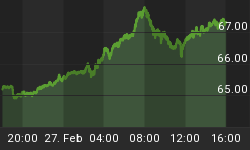Netflix has just inked a four-movie deal with Adam Sandler that threatens to shake up the big theater chains by radically altering the way movies are distributed and viewed. It will allow Netflix to produce movies and to stream them directly to customers' home entertainment centers and computers, completely bypassing exhibit houses. The online Washington Post put this ominous headline on the story: "Why the Adam Sandler deal with Netflix could doom theaters..." Exhibitors, especially big chains like Regal Cinemas, Cinemark and AMC, are understandably upset. But they needn't be. When they come to their senses, they'll realize not only that they have the means to compete with online movie producer/distributors such as Netflix , but to do so in a way that promises to usher in a golden era for the film medium itself.

Let me explain. At first glance, it would appear that Netflix has an insurmountable cost advantage over theaters in delivering content to movie-watchers. Mainly, it takes lots of bandwidth to provide movies-on-demand to subscribers. And although Netflix pays a very significant premium to carriers to ensure that its subscribers enjoy smooth downloads, the expense of this, even after adding in licensing fees paid to film distributors, is much lower than the cost of building and operating brick-and-mortar theaters across the United States. Regal Cinemas, for one, has 7341 screens in 573 theaters -- a big nut to crack, especially with distributors raking as much as 90% off the top in the first two weeks of a movie's run. As a result, the theaters have adapted their business model so that their profits come mostly from the concession stand. Lately, as you may have noticed, they've upgraded the fare so that movie-watchers can enjoy not just popcorn, Mild Duds and Twizzlers, but a martini and a flank-steak dinner.
A Digital Future
But it is their huge investment in digital projection systems that will give the exhibitors the ability to transform the movie business even more radically than Netflix has transformed it already. At a cost of about $65,000 per projector, movie houses have installed digital systems that have all but eliminated Kodak prints. The savings to distributors have been enormous - on the order of a billion dollars a year in mailing and insurance costs alone. Now, instead of making and shipping 1,200 prints to open a blockbuster movie "wide," the studios send out ultra-high-definition discs that cost just a few dollars to create and ship. Digital projection systems have also allowed theaters to broadcast special "live" events, such as performances by the Bolshoi Ballet, the London Philharmonic Orchestra and the New York Metropolitan Opera. The theaters have a big advantage over home systems here, since such performances benefit greatly from giant screens (including IMAX) and spectacular sound systems that far outclass even the best home entertainment systems. And there's yet one more very important factor that will continue to favor theaters over home entertainment systems: the eagerness of all but die-hard couch potatoes to get out of the house on a Friday or Saturday night.
Growing the Film Pipeline
But the area where exhibitors stand to benefit most is in using the digital projection systems to expand their movie offerings well beyond the mostly dismal fare produced by Hollywood's big studios. And let's face it, most of the films that play in suburban multiplexes these days are rubbish, Adam Sandler movies being a prime example. As an alternative, digitally wired theaters will be able to offer cheap, easy distribution to indie film makers whose creativity and ability to "think small" has the potential to attract hordes of moviegoers who have all but given up on Hollywood films. Of course, blockbuster films will retain their appeal and continue to rake in hundreds of millions of dollars globally when they connect with thrill-seekers. But exhibitors will no longer have to depend on blockbusters to fill seats, nor on deals with distributors that exact a very high price for the privilege of showing the most heavily hyped releases.
Theaters will also have an opportunity to show films digitally produced by amateurs. Imagine a local film festival in, say, New York City, that attracts hundreds of entrants, if not thousands. The quality of the top selections would be very high - high enough, presumably, for entrepreneurs to distribute the films to the big theater chains as well to neighborhood movie houses with digital projectors. The theaters could even re-distribute "product" themselves to local cable TV and/or other digital media, since the technology now exists to make movies "fungible" over a wide variety of viewable devices.
Great things lies ahead for theater operators who follow innovative pathways. Instead of worrying about Netflix's deal with an actor who has come to be known more for his innumerable flops than his relatively few hits, they should seize the initiative by opening their projection booths to a nation of would-be auteurs. Meanwhile, a bonanza awaits entrepreneurs who find ways to encourage and reward small-time film-makers with a shot at big-time distribution.















